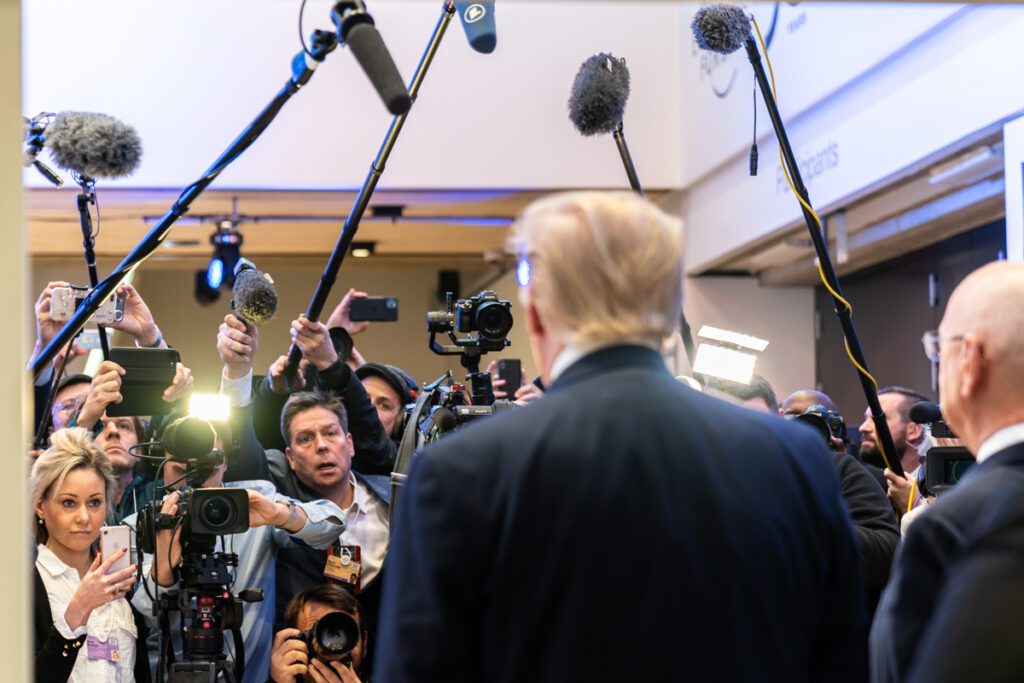
While no hotel-specific policy stands out on the Trump administration’s agenda, some broader policy decisions on taxes and worker visas may especially impact hotels.
The hotel sector is particularly focused on the fate of key business tax provisions in the Tax Cuts and Jobs Act of 2017. Trump campaigned on extending provisions that are set to expire by year-end.
Significant money is at stake. In 2019, Marriott estimated its related tax benefit from the law was $194 million. Hilton calculated that the law had generated a $610 million benefit.
At the time, CEO Christopher Nassetta said that the tax cuts would also help Hilton increase hotel occupancy because many companies would use some of their tax savings to travel more.
“Overall, we think [the changes in tax policy] will be good for the broader economy, lodging industry, and Hilton,” Nassetta said in 2018.
Two representatives of the hotel industry told Skift this month that businesses could face a 33% tax increase if the provisions expire.
“When you’re a business owner running a hotel, what you really want is certainty about your costs to be able to make smart decisions about continuing to expand your business,” said one industry representative who asked that their name not be used. “Extending the 2017 tax provisions would lead to many years of significant tax certainty.”
Some data suggests the law helped hotels invest in their properties. Total capital expenditures within the hotel and lodging industry rose from $12.4 billion in 2017 to $18.9 billion in 2020, according to a study by the International Society of Hospitality Consultants.
Three Key Tax Policies
The sources Skift spoke to pointed to three tax measures they hope the Trump administration and Congress extend.
- The small business deduction: One aspiration is to make permanent a 20% deduction for small businesses on income from ordinary business operations. Over half of America’s nearly 64,000 hotels are small businesses, according to the American Hotel & Lodging Association.
- Bonus depreciation: Another goal is to extend the 100% write-off for commercial assets in the year they’re acquired. The incentive began phasing out in 2023 and will completely expire by 2027. For hotels, the most salient issue is managing renovation costs. If hotel owners can’t write off expansion costs immediately, they may find it more difficult to afford property enhancements.
- Like-kind exchange preservation: A century-old provision of the tax code allows real-estate owners to defer capital gains taxes if the proceeds from selling one property are rolled into buying another. If this provision isn’t saved, hotel owners could struggle to sell and reinvest in new properties without incurring significant tax liabilities.
“There are provisions that are going to sunset in the Tax Cuts and Jobs Act that, as business owners, affect all of us,” said Lisa Lombardo, president of ARK Holdings Group, which provides third-party management for hotel owners, at the Lodging Conference in October.
Extending the tax cuts would likely also benefit investors in publicly held hotel groups and real estate investment trusts. As Hilton’s Nassetta told CNBC at the time of the bill’s passage: “It’s not really going to change the way we allocate capital. Tax reform, in reducing our tax rates, is going to drive more free cash flow, and the largest part of that free cash flow increase is going to go back to our shareholders.”
Worker Visas
Tightening immigration policy was a hallmark of Trump’s campaign. Some hotel industry leaders prefer reform frameworks that allow more temporary workers under H-2B temporary visas while still reducing illegal immigration. H-2B visas are granted for a limited time – for seasonal work, for example, according to the Department of Labor.
The hotel industry has long coveted seasonal workers, especially for remote resort locations without local populations to provide help. The owners of the Grand Hotel on Mackinac Island, for example, have testified before Congress about the importance of having access to temporary foreign workers.
Two longtime travel sector lobbyists believed there was broad hotel sector support to ask Congress not to count returning temporary workers against the cap on the number of visas issued yearly. These industry representatives argued that workers who have previously complied with visa requirements and tax obligations represent ideal candidates for the hospitality sector.
The lobbyists said more specialized H-1B visas, which are mainly for management roles requiring bachelor’s degrees, are valuable for specialized culinary positions, event planning management, and information technology needs.
A debate over H-1B visas erupted last month among Trump supporters, including Elon Musk and Steve Bannon, though it focused on using the program for tech workers.
The Trump administration is planning to carry out widespread deportations in Chicago as soon as Tuesday, the Wall Street Journal first reported, citing four people familiar with the plan. The plan is to target those in the U.S. illegally with criminal backgrounds. Similar actions in other big cities could follow, the Journal said.
Implications of Broader Policies
Industry observers are also monitoring the potential indirect effects of Trump’s broader economic policies. One executive at a large hotel asset management firm noted that any changes to tariff policies could impact development and renovation costs. A longtime hotel sector lobbyist said that energy policy decisions affecting fuel prices could influence travel patterns.
Accommodations Sector Stock Index Performance Year-to-Date
What am I looking at? The performance of hotels and short-term rental sector stocks within the ST200. The index includes companies publicly traded across global markets, including international and regional hotel brands, hotel REITs, hotel management companies, alternative accommodations, and timeshares.
The Skift Travel 200 (ST200) combines the financial performance of nearly 200 travel companies worth more than a trillion dollars into a single number. See more hotels and short-term rental financial sector performance.
Read the full methodology behind the Skift Travel 200.

